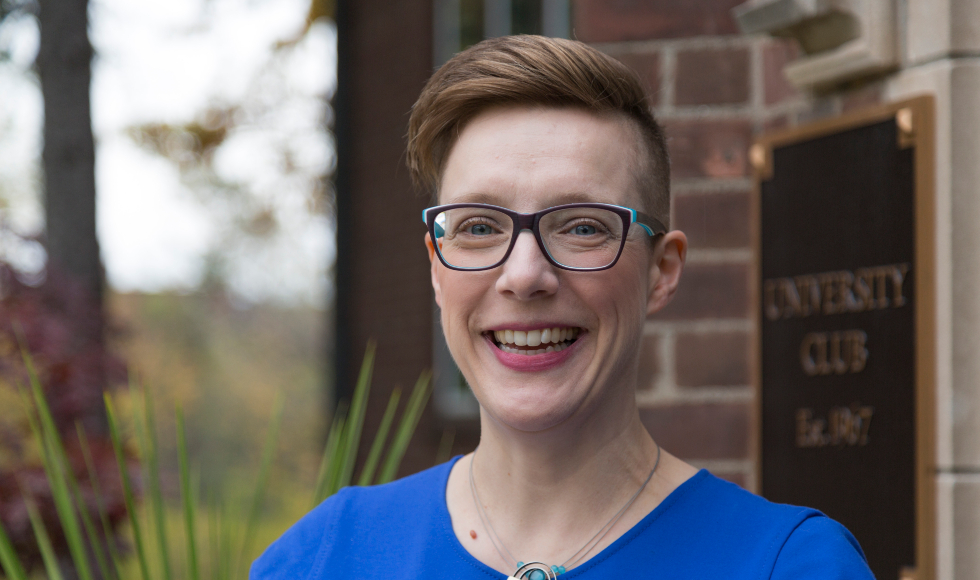How to become an “eTextbook rockstar”

Photo by Colin Czerneda
“The textbook company made me do it.”
That’s what Catherine Anderson says is behind the creation of Essentials of Linguistics, her new open-access linguistics textbook.
“We were using the seventh edition of a standard linguistics textbook,” explains Anderson, who’s taught Mac’s first-year Intro to Linguistics class for more than a decade. “We’d flipped the course, put the resources online – and then the textbook was republished with cosmetic changes that made the online resources obsolete. We figured there had to be a better way.”
With support from Mac and a $15,000 grant from eCampusOntario’s Open Textbook initiative, Anderson and her colleagues in the MacPherson Institute and the Faculty of Humanities created Essentials of Linguistics, an introductory linguistics textbook available online to anyone and everyone.
And unlike those $147 Pearson tomes, Anderson’s book is free.
While the book is still in its pilot stage, reaction has been positive – in fact, Anderson says her students gave her a spontaneous round of applause in class when she announced their textbook was available for free online.
And as the first open-access linguistics textbook, Essentials of Linguistics is attracting attention from outside McMaster as well.
My friend @candersHamilton is an eTextbook ROCKSTAR. Go Open Access Textbooks, go Catherine!!
— Dr. Jennifer Askey (@jaskey) October 5, 2018
For Anderson, producing an open-access textbook is all about making sure students have access to high quality materials – no matter what their financial situation might be.
“There are a lot of students for whom $147 is absolutely prohibitive,” says Anderson, who has been with the department of Linguistics and Languages since 2005, and is now a teaching-track professor. “That then becomes an accessibility issue. Providing an open-access, online textbook addresses that.”
Accessibility is one issue, but Anderson’s textbook also addresses others. For example, along with chapters on basic linguistics topics like producing speech sounds, sentence structure and word forms, Anderson has included a chapter on using linguistics to help revitalize Indigenous languages in Canada following a century of repression in residential schools.
“As a linguist, and in the context of the calls to action in the Truth and Reconciliation Commission’s report in 2015, I have the responsibility to show students how linguistics can help Indigenous communities preserve their languages,” she explains. “I spoke with David Kanatawakhon-Maracle, a Mohawk instructor at Western, about his work. The nice thing about an open-access textbook is that as resources become available – like the Mohawk toolkit that’s being developed at Mac – we’ll be able to update the book with links.”
At the core of it all, Anderson values the fact that making knowledge free and accessible creates a sense of equity between her and her students.
“I see learning as a communal experience – we’re all in this together, and we all have a part to play,” she says. “I can’t actually teach anyone anything. I just create the conditions in which students can learn. Making it possible, challenging and interesting – that’s the heart of my work.”


